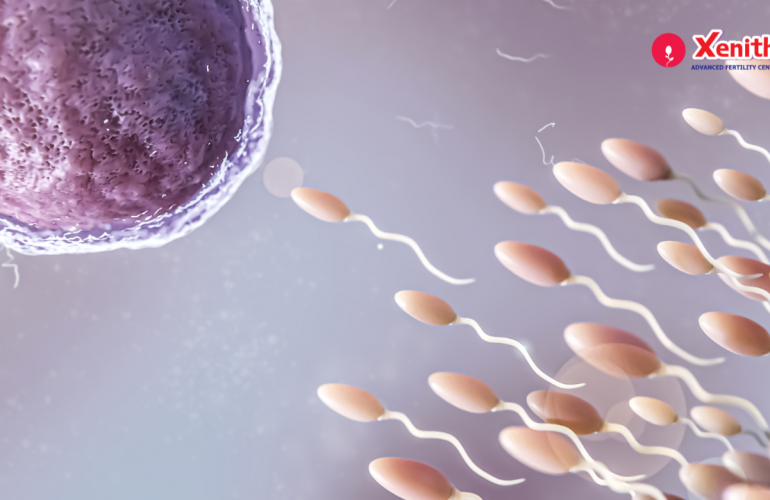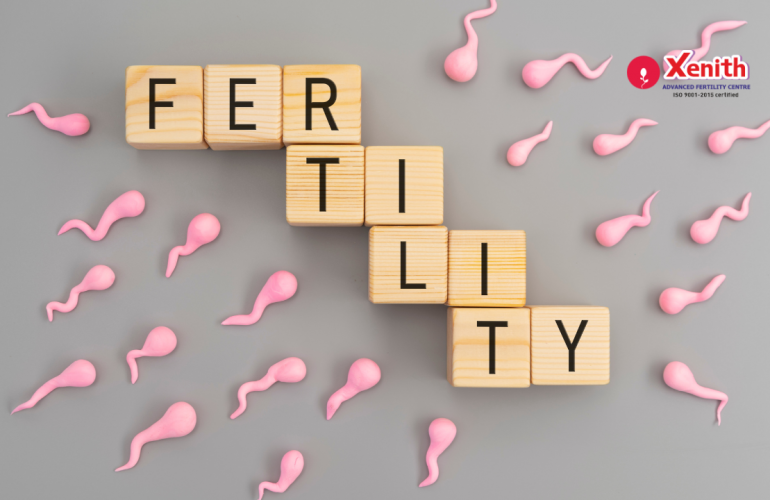If you’re considering donor conception in India, you’re not alone. More and more individuals and couples are turning to this path—whether due to infertility, genetic conditions, or evolving ideas of parenthood.
But donor conception is not just a medical procedure. It’s an emotional, psychological, cultural, and legal journey.

Free Thursday Consultation
Book Your AppointmentThis guide is for you—whether you’re just starting to explore your options or you’re already in the middle of decision-making. You’ll find essential legal insights, emotional support strategies, and tools to help you move forward with confidence and care.
- What Is Donor Conception?
- The Legal Framework for Donor Conception in India
- The Emotional and Psychological Journey
- Cultural and Social Considerations in India
- Ethical and Philosophical Questions You Might Ask
- Disclosure: Should You Tell Your Child?
- Choosing the Right IVF Clinic for Donor Conception in India
- How Xenith IVF Supports Your Donor Conception Journey
- Final Thoughts
- FAQs
What Is Donor Conception?
Donor conception means using donated sperm, eggs, or embryos to achieve pregnancy. You might choose this option for many reasons:
- If you or your partner are facing fertility challenges like azoospermia or low egg quality
- If you carry a genetic condition and want to prevent passing it on
- If you’re a single woman hoping to become a parent on your own
Donor conception can offer a clear and hopeful path when traditional methods haven’t worked or aren’t available. But like any major decision, it comes with its own emotional and ethical considerations, which you deserve to understand fully.

The Legal Framework for Donor Conception in India
India’s Assisted Reproductive Technology (Regulation) Act, 2021 outlines specific laws around donor conception. As you go forward, it’s important to understand what you’re legally agreeing to.
Here’s what you need to know:
- Anonymity: You won’t have access to the donor’s identity, and your child won’t either.
- Single-use donation: Each donor’s sperm or eggs can be used only once for one couple.
- Legal parenthood: You (and your partner, if applicable) will be the legal parents—not the donor.
- Consent: Both partners must provide written consent before treatment.
- Eligibility: Single women are permitted to use donor sperm. Single men and same-sex couples are currently not allowed under this law.
Before starting treatment, ask your clinic for a full breakdown of how they comply with these regulations. It’s your right to be informed and protected.

The Emotional and Psychological Journey
If you’re feeling overwhelmed, you’re not alone. Many people feel a deep emotional shift when they realise they’ll be having a child without a genetic connection.
You may experience:
- A sense of grief or loss
- Concerns about how your child might feel one day
- Worries about whether you and your partner are on the same page
- Anxiety over how your family or society might react
It’s okay to feel all of this. What helps many people is speaking with a fertility counselor—before and after treatment. A trained professional can help you process your emotions, explore your values, and make choices that feel right for you and your family.
Cultural and Social Considerations in India
In Indian society, you may face unique challenges—especially if you’re trying to navigate donor conception in a conservative or traditional family setting.
You might deal with:
- Stigma surrounding infertility
- Pressure to keep your treatment a secret
- Extended family members asking intrusive questions
- The fear of judgment from society
You’re not required to explain your choices to anyone. But if you do decide to share your story, you deserve support—not shame. Talking openly with a counselor can help you decide how much to disclose and how to manage difficult conversations.
Ethical and Philosophical Questions You Might Ask
It’s completely natural to ask yourself deeper questions as you move forward:
- Is it okay to keep my child’s donor origins private?
- What makes someone a real parent—genes, or love and care?
You don’t have to have all the answers right now. What matters is that you’re thinking carefully about what kind of parent you want to be. And that you’re making decisions with compassion, both for yourself and your future child.
Disclosure: Should You Tell Your Child?
One of the biggest decisions you’ll make is whether—and when—to tell your child they were conceived through a donor.
Global best practices recommend being honest with your child from an early age. When children grow up always knowing their story, they’re more likely to feel secure and trusting.
Here’s what helps:
- Begin with simple, age-appropriate language
- Answer your child’s questions honestly and lovingly
- Seek books, counseling, and support groups to guide you
- Be ready to revisit the conversation as your child grows
It’s normal to feel scared about this. Many parents worry: Will this change how my child sees me? But children respond best to love, openness, and truth shared gently over time.
Choosing the Right IVF Clinic for Donor Conception in India
Not all clinics offer the same quality of care or support. When you’re selecting a clinic, take your time. Ask questions. Look for one that understands the emotional and legal complexities of donor conception.
Here’s what to look for:
- Transparent communication about the donor selection process
- Legal compliance with the ART Act, 2021
- Psychological counseling before and after treatment
- Respect for your personal values, privacy, and autonomy
Your clinic should support your whole journey—not just the medical part.
How Xenith IVF Supports Your Donor Conception Journey
At Xenith IVF, your journey is supported at every stage—not just medically, but emotionally and legally too.
Here’s how Xenith can help you:
- Clear guidance on laws, consent, and paperwork
- Ethical donor programs with anonymous, legally compliant practices
- Counseling for you and your partner to manage emotions, decisions, and disclosure
- Ongoing support throughout your parenting journey
You’ll be cared for by professionals who truly understand what this path means for you.

Final Thoughts
Donor conception is a deeply personal decision. It asks you to let go of some expectations—and open yourself up to new possibilities.
You may wrestle with emotions, face cultural hurdles, or ask difficult questions. But with the right information, compassionate counseling, and legal protection, this can be a fulfilling and empowering way to build your family.
Trust yourself. Be informed. Seek support when you need it. And remember, parenthood is about love, intention, and the courage to create your own path.
FAQs
Yes. It’s legal under the ART (Regulation) Act, 2021.
No. The law requires full anonymity of donors.
Yes. Single women can use donor sperm for conception.
Many fertility clinics offer counseling, and you can also find independent fertility therapists and support groups.
Experts recommend early, age-appropriate disclosure for emotional well-being.
Not genetically, but children often reflect their parents in values, habits, and emotional bonds formed through upbringing.




